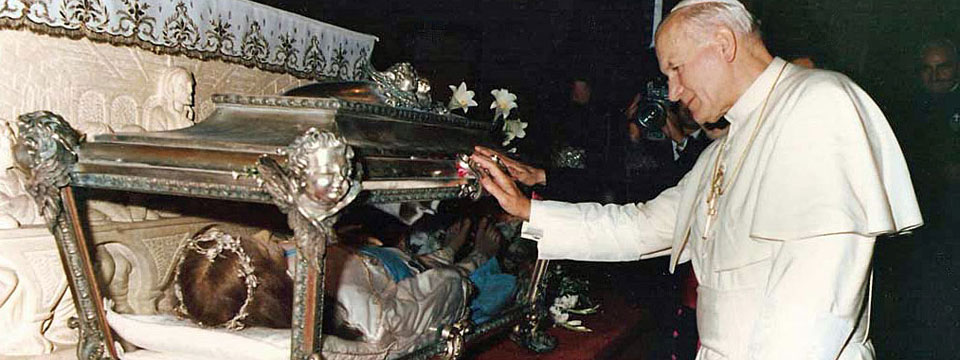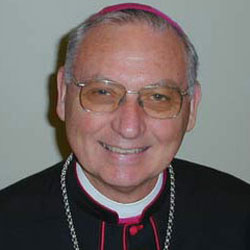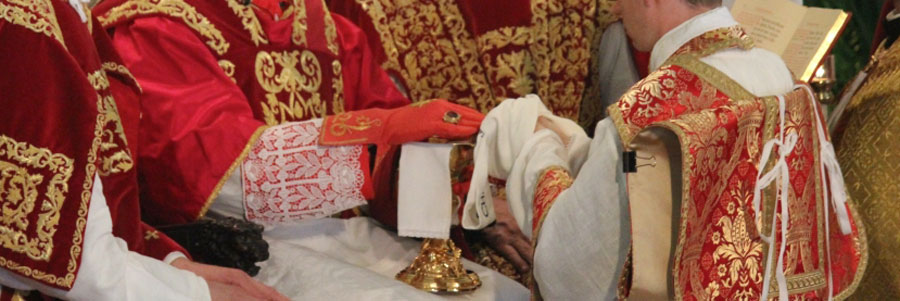Such is the embrace of the communion of Saints that today’s commemoration of St Maria Goretti, whom the Church reveres for her witness to virginal chastity one century ago, easily takes the Christian mind back to the memory of the martyrs of her early centuries — those whom the Roman Church has so specially loved and honoured that from an early date their names found their way into the Canon of the Mass: Felicity, Perpetua, Agatha, Lucia, Agnes, Cecilia and Anastasia.
The veneration of these and thousands more across the centuries of course bears witness to the faithfulness of the Church to the Gospel virtues, which she has upheld and taught with such constancy, so often in the face of incomprehension or ridicule. There may be mostly women so honoured, but the witness of boys and men is not overlooked as almost as close to our own time, and perhaps with a particular relevance to the mores of the western world today, she recalls the witness to chastity of the Ugandan Martyrs.
We priests surely understand well the value of our own living witness to the virtue of chastity, so intimately bound up with our calling. In his homily at this year’s Chrism Mass, Pope Benedict recalled those beautiful but rather forgotten vesting prayers. We put on the alb of the clean heart, the garment washed in the blood of the Lamb. It is secured with the cincture of restraint, of defence against tainted desires that will keep us strong in the virtus continentiae et castitatis.
This freely embraced and daily lived virtue gives us a special title to speak of it in our teaching. Indeed we often find ourselves in pastoral moments of opportunity which pass into obligation. The preparation of couples for the sacrament of marriage comes to mind, but even well before that, in all those meetings with young people in groups large and small, when we have opportunities for the formation of the conscience at a sensitive period of development. Unless they are particularly fortunate, ours might be the only voice they hear that speaks of these beautiful things and of the possibility and power to live them.
We must not be afraid to speak, gently, clearly, and sensitively, calling a new generation to Christly living, the only path to true happiness. We know that so many of them today are unhappy, at an age that seems to start earlier and earlier, because something has gone wrong in this area. We often hear the stories of the pain they and their families suffer; we can exercise a wonderful and powerful influence which brings about restoration of happiness through grace, and of virtue when it has been lost.
Today’s story has a happy ending. God’s grace was at work to restore to virtue the very man who killed St Maria Goretti. Alessandro underwent a profound conversion, and was released from prison after twenty-seven years. He lived to see Maria canonised in 1950, himself died close to sanctity, and gives the world an enduring example of the power of grace to triumph over the darkest corners of the human heart.





